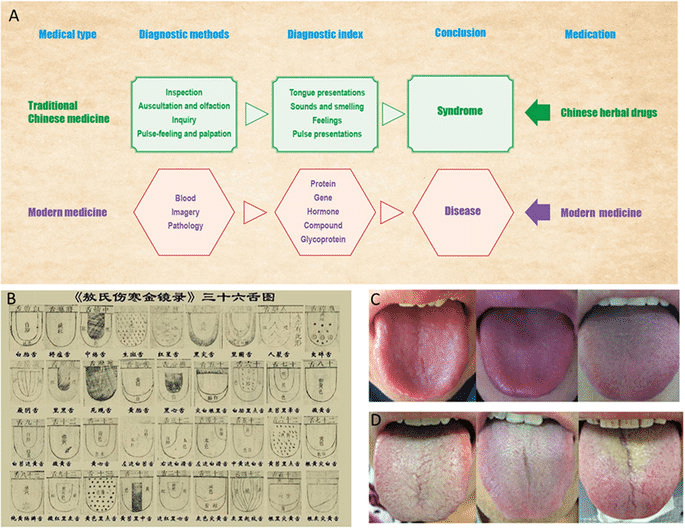Tongue diagnosis is a unique diagnostic technique in Traditional Chinese Medicine (TCM) that provides valuable insights into an individual’s health condition. It involves examining the appearance, color, coating, and other characteristics of the tongue to assess the balance of Qi, blood, Yin, and Yang in the body. In this article, we explore the practice of tongue diagnosis in TCM and how it can provide valuable information about an individual’s overall health and the presence of underlying imbalances.
Understanding Tongue Diagnosis in TCM:
In TCM, the tongue is considered a reflection of the internal organs and their energetic states. By observing the tongue’s appearance and characteristics, TCM practitioners can gather information about the body’s overall balance, organ function, and the presence of potential health issues. Tongue diagnosis is a non-invasive and easily accessible tool that helps guide TCM treatment plans and monitor progress.
Key Aspects of Tongue Diagnosis:
- Tongue Body Appearance: The color, shape, size, and moisture level of the tongue body provide important clues about an individual’s health. For example, a pale or swollen tongue may indicate Qi or blood deficiency, while a red tongue may suggest heat or excess.
- Tongue Coating: The coating refers to the thin layer on the tongue’s surface. It can vary in color, thickness, and distribution. A thick, yellow coating may suggest heat or dampness, while a thin, white coating may indicate a deficiency or cold condition.
- Tongue Shape and Movement: The shape and movement of the tongue can also provide information about organ function and overall vitality. For example, a quivering tongue may indicate internal disharmony or stress, while a stiff tongue may suggest stagnation or blockages.
- Tongue Body Zones: TCM divides the tongue into different zones, each corresponding to specific organ systems. Changes in a particular zone may indicate imbalances or issues within the corresponding organ or meridian.
Interpreting Tongue Diagnosis:
TCM practitioners consider multiple factors when interpreting tongue diagnosis. They examine the overall picture, taking into account the combination of tongue characteristics, the individual’s medical history, symptoms, and other diagnostic methods such as pulse diagnosis and questioning. This comprehensive approach allows practitioners to assess the underlying imbalances and tailor treatment plans accordingly.
Clinical Applications of Tongue Diagnosis:
- Identifying Imbalances: Tongue diagnosis helps identify imbalances in the body, such as Qi deficiency, blood stagnation, or heat accumulation. This information guides the selection of acupuncture points, herbal prescriptions, and lifestyle recommendations to restore balance.
- Monitoring Progress: Tongue diagnosis is a useful tool for tracking the progress of treatment. As the body’s balance is restored, changes in the tongue’s appearance and coating can indicate improvements in organ function and overall health.
- Prevention and Health Maintenance: Tongue diagnosis can also be used as a preventive measure to detect potential imbalances before they manifest as symptoms. Regular tongue assessments can help individuals maintain optimal health and address imbalances at an early stage.
Incorporating Tongue Diagnosis:
Tongue diagnosis is a skill that requires training and experience. It is best performed by a qualified TCM practitioner who can accurately interpret the tongue’s characteristics and apply them to an individual’s overall health assessment. Self-observation of the tongue can also provide valuable insights, but it is essential to seek professional guidance for a comprehensive evaluation and personalized treatment.

Tongue diagnosis is a valuable diagnostic tool in Traditional Chinese Medicine, providing insights into an individual’s health condition, organ function, and underlying imbalances. By carefully observing the tongue’s appearance, coating, and other characteristics, TCM practitioners can tailor treatment plans and monitor progress. Tongue diagnosis empowers both practitioners and individuals to take an active role in maintaining and restoring balance, promoting overall health and well-being.









